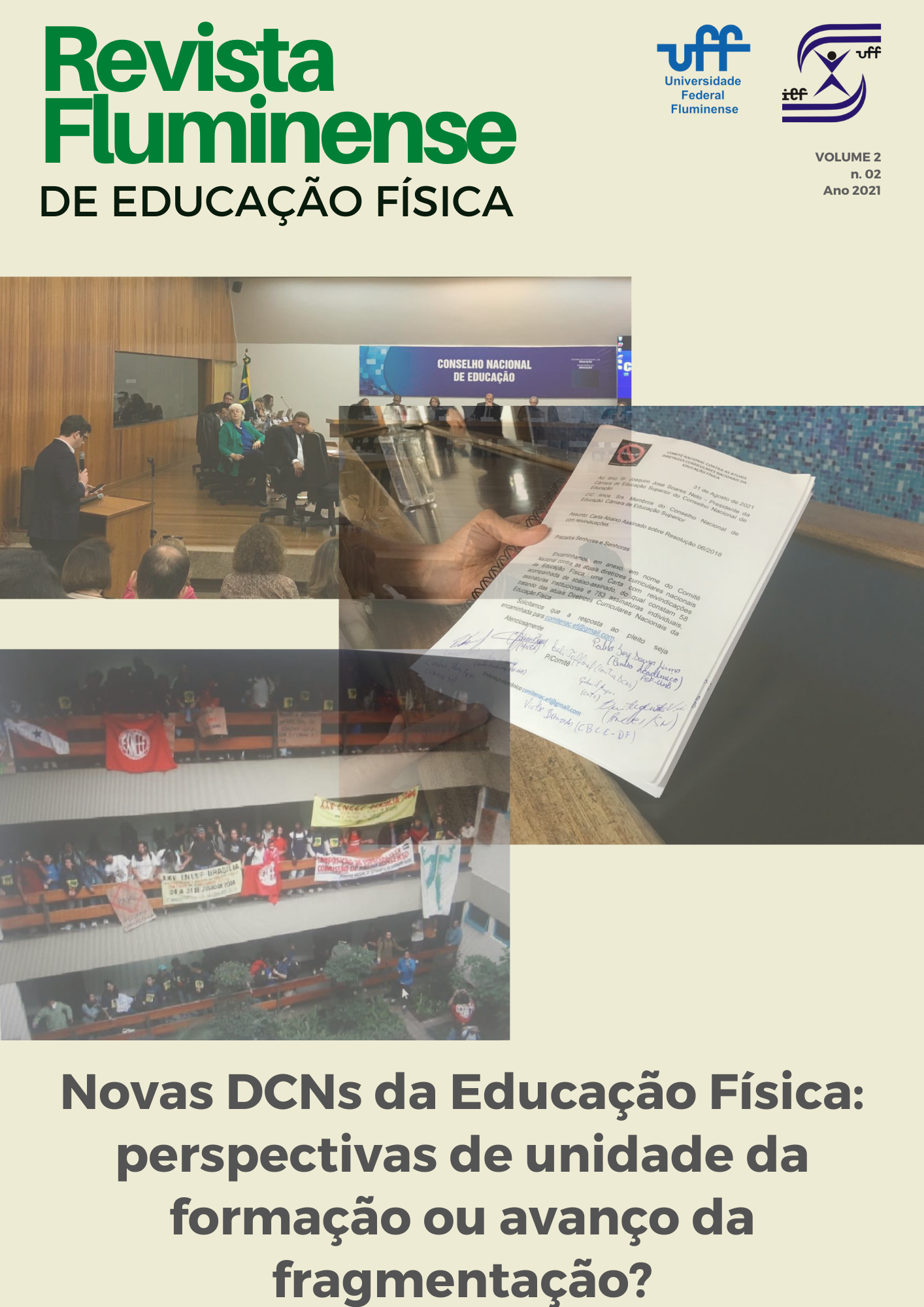THE NEW NATIONAL CURRICULUM GUIDELINES IN PHYSICAL EDUCATION: ATTACKS ON WORK AND THE TRAINING OF WORKERS AND PHYSICAL EDUCATION WORKERS
Abstract
This text was elaborated from the reflections and discussions established by the authors, with the aim of analyzing the relationship between educational policies and the new National Curriculum Guidelines for Physical Education (DCNs) in the context of the capitalist mode of production and its possible impacts on the training and work of Physical Education workers. The theoretical-methodological assumptions are based on dialectical historical materialism, making use of documentary research, in the light of conjunctural, legislative and normative elements that constitute the set of regulations, in order to weave an analytical framework on the subject. The results reveal a setback in educational policies in the field of Education and Physical Education, with emphasis on intellectual debasement, knowledge fragmentation, teacher conformation, market influences, reactionary, conservative and precarious of the CONFEF/CREFs System. The resistance constituted through the Forum of Extended Degrees (FORLIA), the National Movement against the regulation of Physical Education Professionals (MNCR) and the National Committee Against the Current DCNs of Physical Education, reaffirm the radical defense of unified training in Physical Education, with broad and critical theoretical training, with solid theoretical-methodological reference, the struggle for the right to work for the entire working class is permanent for everyone in Physical Education.
Downloads
Downloads
Published
Issue
Section
License

This work is licensed under a Creative Commons Attribution-NonCommercial-NoDerivatives 4.0 International License.
Autores mantêm os direitos autorais e concedem à Revista Fluminense de
Educação Física o direito de primeira publicação, o que permite o
compartilhamento do trabalho com reconhecimento da autoria e publicação
inicial nesta revista. Os dados, conceitos e opiniões apresentados nos
trabalhos, bem como a exatidão das referências documentais e bibliográficas,
são de inteira responsabilidade dos/as autores/as.
Autores têm permissão e são estimulados a publicar e distribuir seu trabalho
online (ex.: em repositórios institucionais ou na sua página pessoal) já que isso
pode gerar alterações produtivas, bem como aumentar o impacto e a citação
do trabalho publicado.
Em virtude de aparecerem nesta Revista de acesso público, os artigos são de
uso gratuito, com atribuições próprias, em aplicações educacionais e não-
comerciais.




